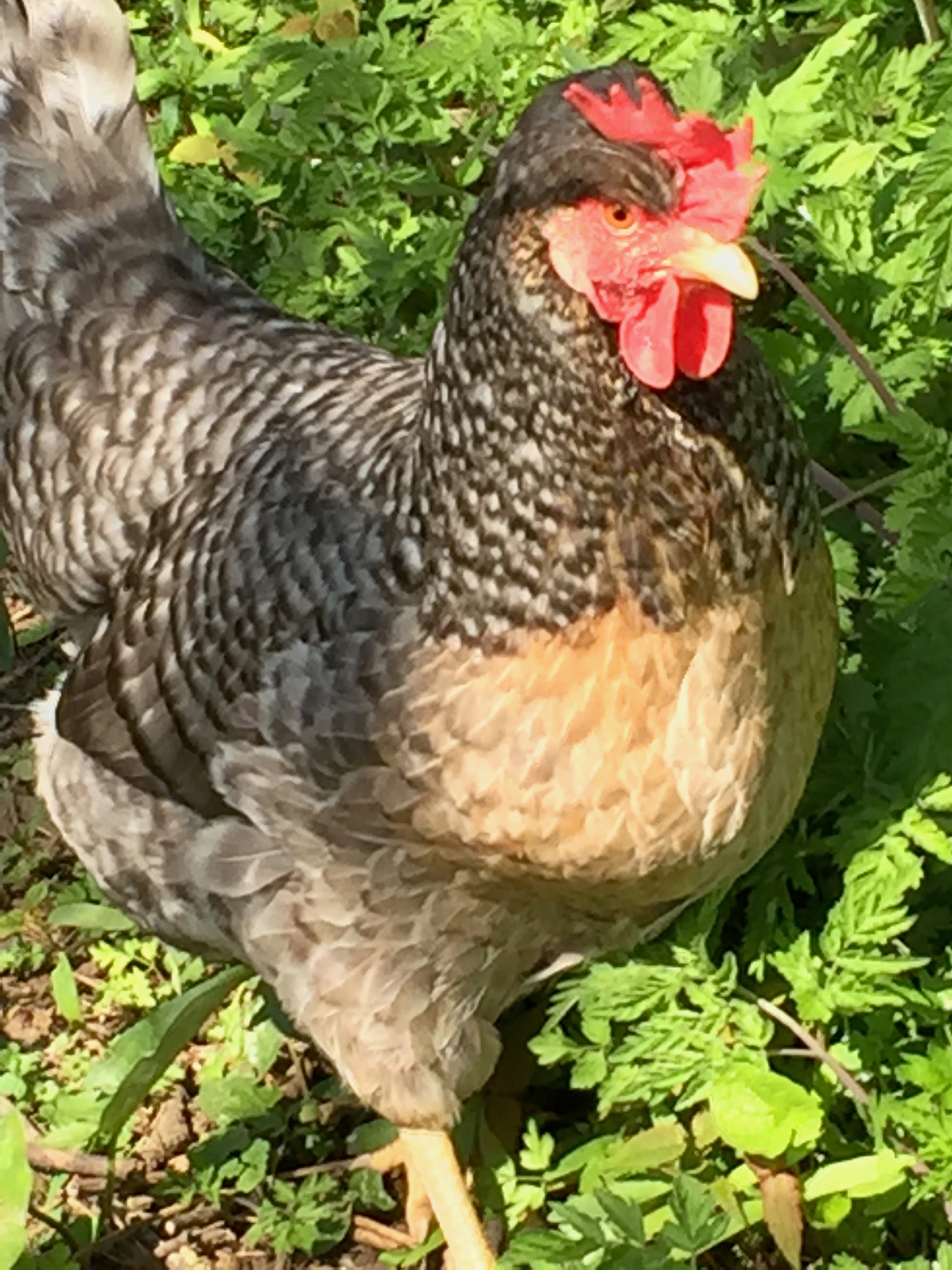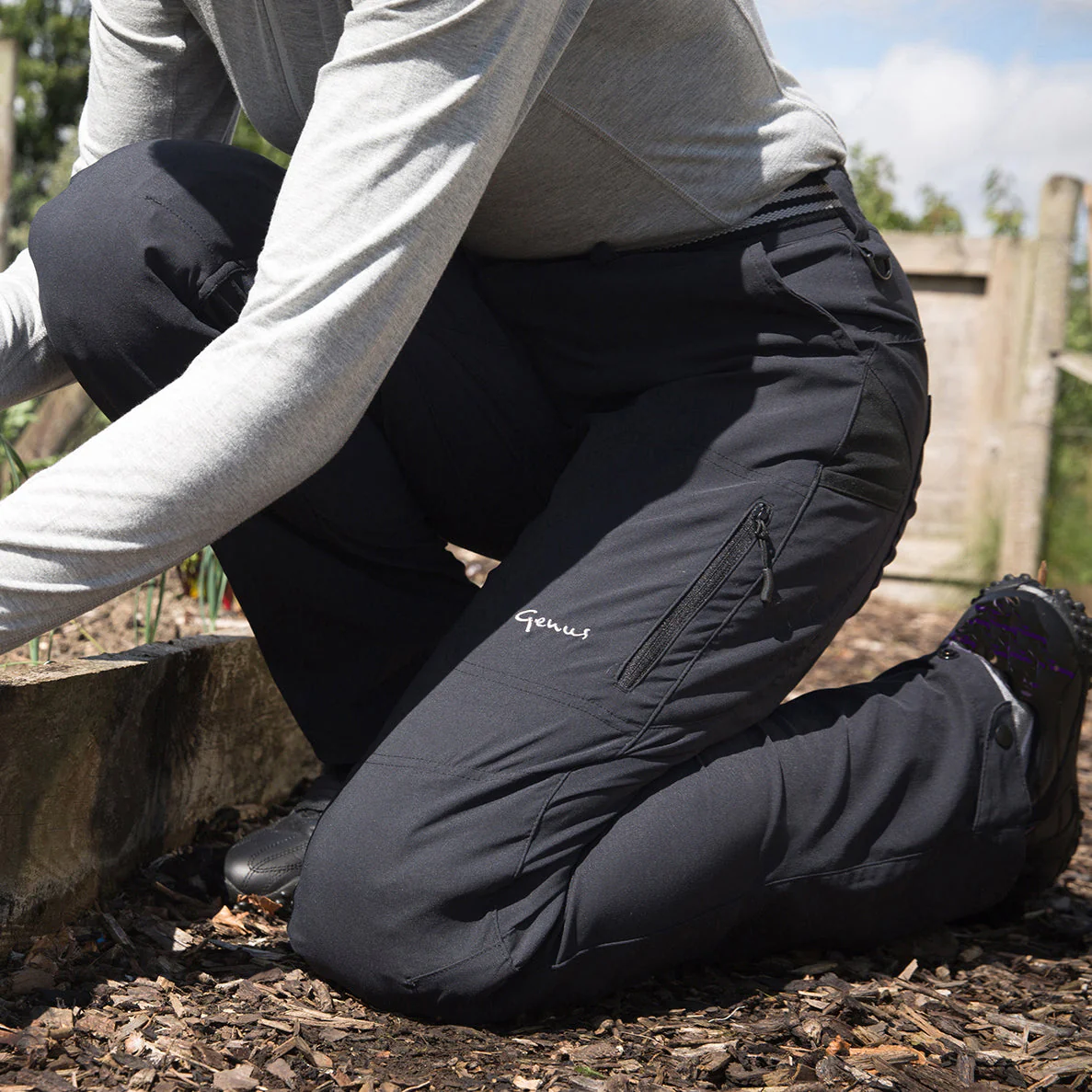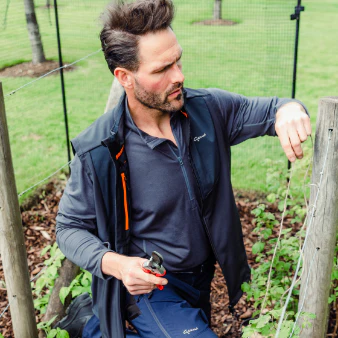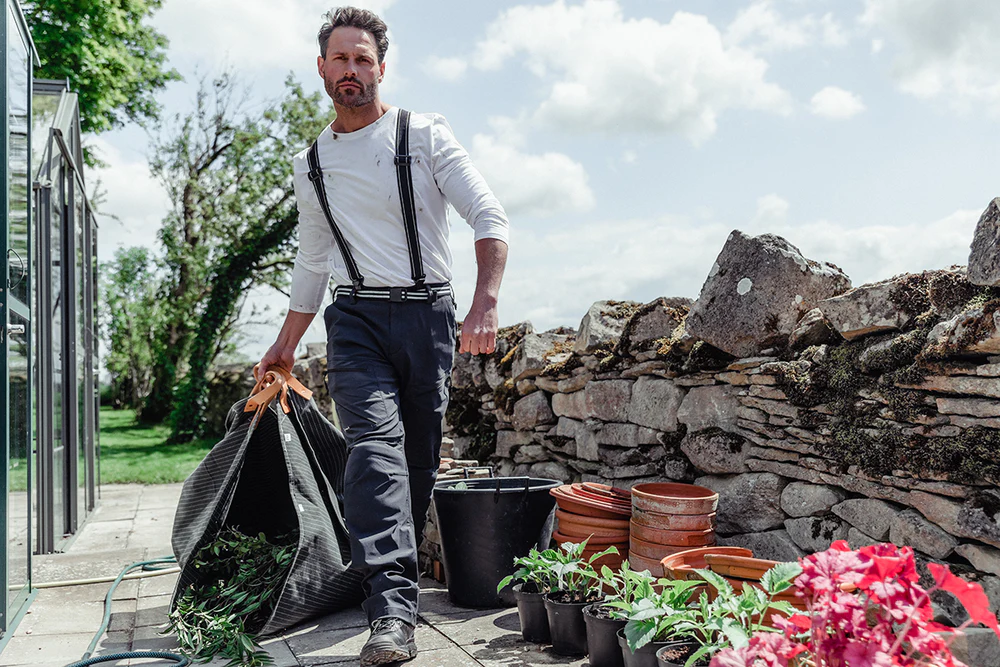Garden chickens for gardeners' wellbeing

The last few days, it’s been raining a bit too much for there to be much gardening. However, the newly arrived chickens at the bottom of the Genus garden provide a reason to get out there whatever the weather. We are following a trend. Since 2007/08, the ownership of garden chickens has increased significantly. Estimates suggest there may be as many as 750,000 garden chickens nationally. The British Hen Welfare Trust, rehomes an amazing 60,000 battery chickens a year to new owners keeping hens at home.
What’s the attraction? These days, it’s certainly not the economics of home egg production. By the time the coop and food is bought, and the fences put up, costs per egg are bound to be more than in the shops. No, it’s the fun of having the chickens there. Something else to provide enjoyment and make a gardener feel good. The eggs are much nicer too. There is no evidence of any nutritional difference between garden chicken eggs and commercial ones, but they just seem to taste better and the yolks look yellower too.
The other feel-good factor is being able to contribute to chicken welfare by taking on an ex-battery hen and giving it a new lease of life, or alternatively, contributing to the continuation of traditional and rare breeds. The Burford browns and Cotswold Legbars we have here tell an interesting story. They are both modern traditional breeds! The Burford browns were developed locally during the 1990’s, the exact heritage is a secret, but with the bloodlines inherited from his grandmother the farmer developed hens that are prolific layers of dark brown eggs. These have gone on to provide supermarkets with alternatives to more commercial eggs. Cotswold Legbars, such as Henrietta in the picture, lay eggs in pastel shades, they were first recorded as a hybrid breed in the 1920s, and, revived during the 1980s, they led the way bringing traditional coloured eggs back to the market.
As well as contributing to gardeners wellbeing, there’s no doubt that the chickens have a part to play in the garden, eating kitchen scraps or garden waste and producing great manure for accelerating compost well suited to vegetable growing.











